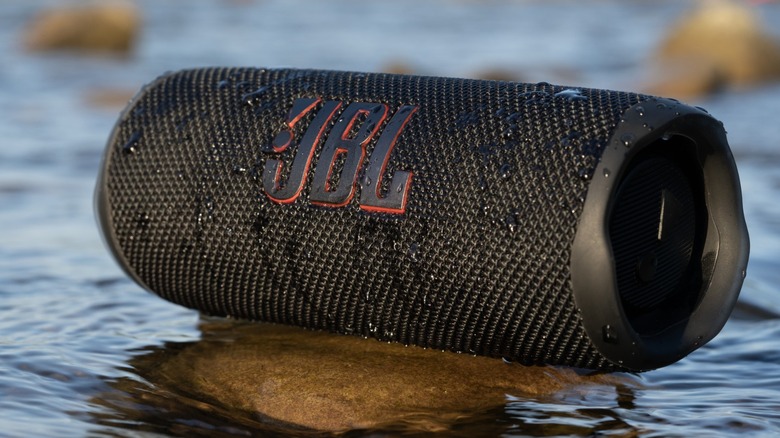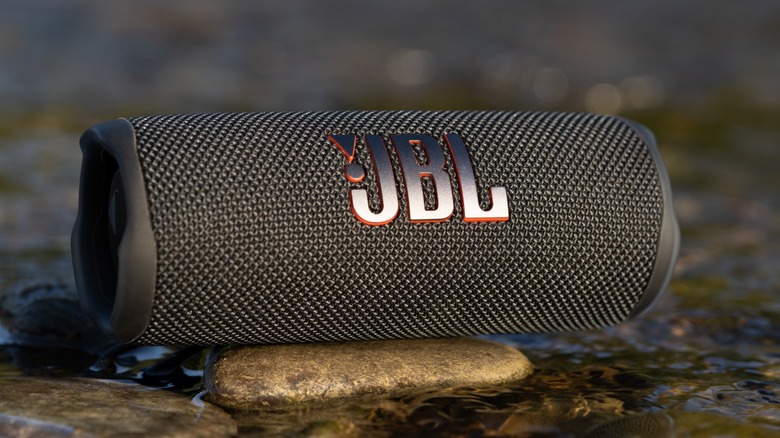Can Waterproof Speakers Go Underwater?
We may receive a commission on purchases made from links.
When a device is marketed as waterproof, it's generally not a good idea to voluntarily find out. The feature is usually there as a form of protection, not something that absolutely must be used in water to get the complete experience. Speakers are no different; a "waterproof" speaker is typically designed to be used around water, like a lakeside or pool party. Events where if water did splash or soak the speaker, it would likely be fine, and you don't have to worry about ruining the components or diminished audio quality.
No speaker is completely waterproof — it's far safer to call them water-resistant. That said, there are speakers that could be completely submerged and still survive. However, how long it can be submerged and how deep it can go before getting ruined are determined by the speaker's IP (Ingress Protection) rating.
For instance, an IP67 speaker would have level 6 protection from solid bodies (in this case, something as fine as dust) and a level 7 protection from water (meaning that it can be submerged up to just over 3 feet for 30 minutes). A rugged IP68 speaker (the same rating as an iPhone 16), like the JBL Flip 7, could be submerged even deeper and for longer, but you'll have to consult the manufacturer's guide to know the limits of what it can handle.
Some water-resistant speakers can go underwater, but why should you?
There are no advantages to dunking your speaker in water. In fact, despite being one of the most water-resistant speaker brands, we don't recommend calling JBL speakers waterproof. There's just always that risk that something will go wrong, or you may have misunderstood the manufacturer's water-resistance specifications. Besides, many of the speakers some consider the best "waterproof" speakers are actually rated at IPX7 — not even IPX8, making the average underwater dunking even sketchier.
Assuming the speaker isn't damaged by being submerged, what advantages are there to putting your speaker in water? Sound travels best through the air, so you won't get to experience the high-quality audio you paid for. On top of that, there is very limited Bluetooth connectivity underwater — we're talking a range of only a few inches. Would you want to risk hundreds of dollars you spent on a high-quality speaker just for poor audio performance?
Our advice: save testing the water resistance of your speaker for genuine accidents. It's better to be grateful your speaker survived a dive than angry that your waterproof speaker doesn't work underwater.

